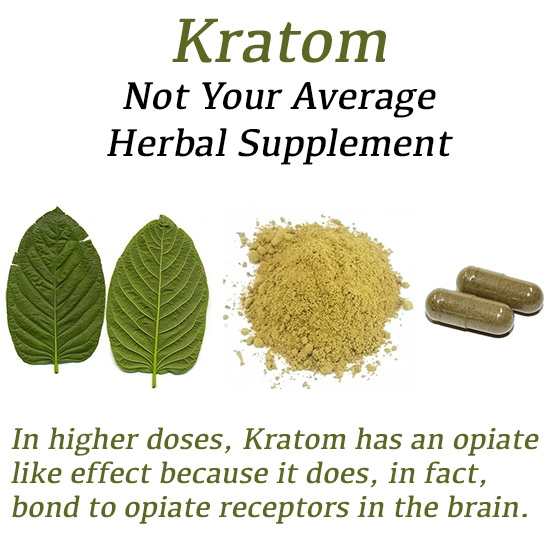What is Kratom?
Kratom is a plant native to Southeast Asia, traditionally used for its stimulant and opioid-like effects. Derived from the leaves of the Mitragyna speciosa tree, kratom is often marketed as a natural remedy for pain, anxiety, and opioid withdrawal. It is typically consumed as a tea, capsule, or powder.
While it may appear to be a safer, plant-based alternative to prescription drugs, kratom carries significant risks. As its popularity has grown in the U.S., so has concern about its potential for abuse and addiction.
How Kratom Works
Kratom contains active alkaloids—primarily mitragynine and 7-hydroxymitragynine—that interact with opioid receptors in the brain. At low doses, kratom acts as a stimulant, increasing energy and focus. At higher doses, it can have sedative and euphoric effects similar to opioids like morphine or heroin.
Because of these effects, users may develop a psychological and physical dependence on kratom, especially when taken frequently or in large quantities.
Signs and Symptoms of Kratom Addiction
Kratom addiction can develop gradually, and many users may not realize they’ve become dependent. Common signs include:
Increased tolerance – needing more to feel the same effects
Cravings and compulsive use
Withdrawal symptoms when not using
Neglecting responsibilities at work, school, or home
Changes in mood, such as irritability, depression, or anxiety
Physical symptoms, including sweating, nausea, tremors, or insomnia
Kratom Withdrawal and Detox
Although kratom withdrawal is generally not life-threatening, it can be physically and emotionally challenging. Symptoms can include:
Muscle aches
Sleep disturbances
Fatigue
Irritability or aggression
Intense cravings
Professional medical detox provides a safe, supervised environment where withdrawal symptoms can be managed with support and, when appropriate, medication.
Treatment for Kratom Addiction
At our treatment center, we offer individualized, evidence-based care for those struggling with kratom dependence. Our approach includes:
Medical detox (if needed)
Cognitive Behavioral Therapy (CBT)
Individual and group counseling
Dual diagnosis treatment for co-occurring mental health conditions
Holistic therapies such as mindfulness, yoga, and nutrition support
We recognize that every person’s journey is unique. Our goal is to address not only the addiction but also the underlying emotional and psychological factors contributing to it.
